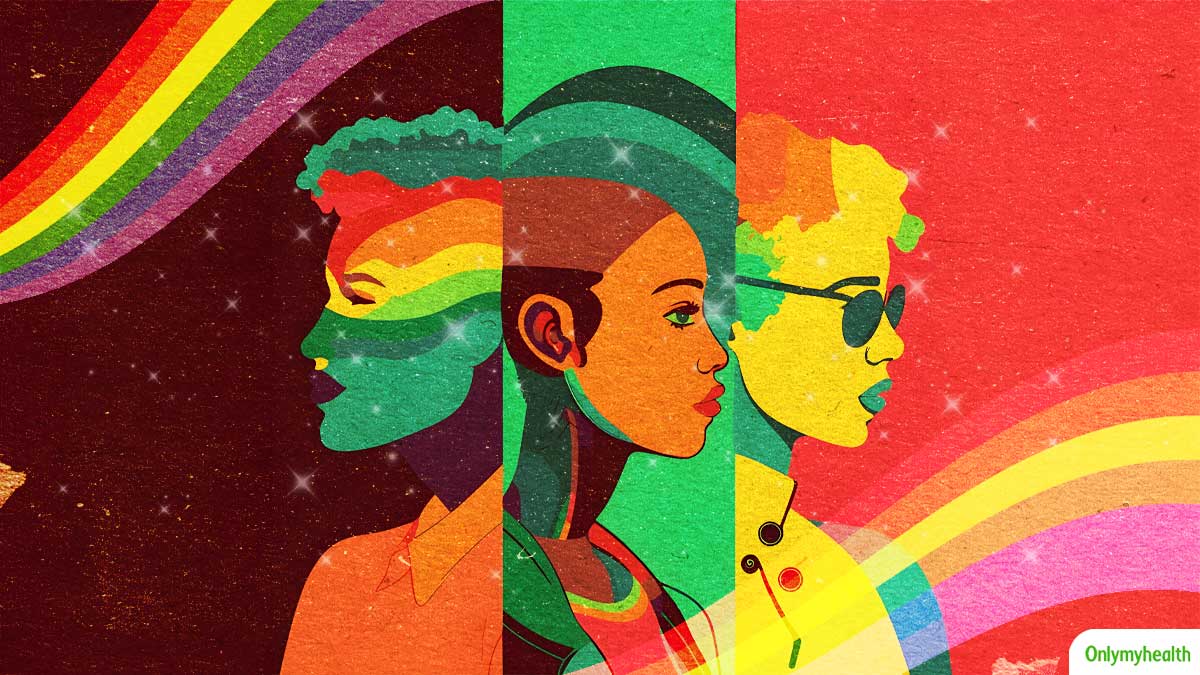
Love, a universal human experience, is often painted with rosy hues. Yet, for the LGBTQ+ community, the journey to and through love can be fraught with unique challenges that can significantly impact mental health. It’s time to shed light on the complexities of LGBTQ+ relationships, understand the hurdles, and offer strategies for building resilient connections.
Table of Content:-
The Weight of Expectation and Rejection
The LGBTQ+ community often grapples with heightened expectations, both internally and externally. There’s a pervasive myth of the 'perfect queer relationship,' a pressure to find a partner who mirrors one's identity or experiences. This can lead to unrealistic standards and a fear of falling short, impacting self-esteem.
Moreover, the dating scene can be a minefield of rejection, often magnified by societal prejudice. Repeated rejections based on sexual orientation or gender identity can erode self-worth and lead to anxiety or depression.

The Impact of Stigma and Discrimination
Stigma and discrimination are constant companions for many LGBTQ+ individuals. These external pressures can seep into relationships, causing strain and conflict. Partners may face discrimination together, amplifying feelings of isolation and creating a shared trauma.
Internalised homophobia or transphobia can also be a silent saboteur. Self-doubt and shame can hinder open communication, intimacy, and trust-building within a relationship.
Unique Challenges for Different Subgroups
Each letter in the LGBTQ+ acronym represents a unique set of experiences. To preserve the identity of the members of the LGBTQ community who spoke to the Onlymyhealth team, their names have been omitted.
For lesbians, challenges can include societal pressures to conform to heterosexual norms, misconceptions about female sexuality, and difficulties finding supportive partners. As one person shared, "Finding a partner who understands the unique challenges of being a lesbian can be tough. It feels like you're constantly explaining yourself."
Also Read: Mental And Physical Challenges of Transgender People Featuring Rudrani Chettri And Krishna Singh

“People often assume that lesbians are either hyper-masculine or hyper-feminine. It's frustrating when you don't fit into those boxes. Moreover, there's a pressure to be in a 'couple' and have kids, which can create unnecessary stress when you're not ready for that."
Internalised homophobia, societal expectations of hyper-masculinity, and the pressure to adhere to specific relationship models can be overwhelming. One gay man expressed, "I've often felt pressure to conform to stereotypes of what a gay man 'should' be. It's exhausting trying to fit into a mould that doesn't feel authentic to me."
"Dating can be a numbers game. It's disheartening to swipe left time and time again, feeling like you're not enough. I've experienced a lot of internalised homophobia, which makes it difficult to trust and open up in relationships.”
For people who identify as bisexuals, questioning identity, societal stereotypes, and challenges in finding acceptance from both heterosexual and homosexual communities can lead to identity crises and relationship instability. As one bisexual person put it, "People often question my sexuality, making me feel like I have to justify my identity."

"It's challenging to find partners who are accepting of my bisexuality. Some people assume I'm just experimenting. I feel like I don't belong in either the straight or gay community, which can be isolating."
Navigating gender transition within a relationship, societal misconceptions, and the potential partner's discomfort with the process can create significant stress for transgenders. One individual shared, "Dating as a transgender person is incredibly complex. You have to navigate your own identity while also considering how your partner will react to your transition."
"Finding someone who accepts me for who I am, not just who I was, is a constant struggle. The fear of rejection based on my gender identity is always present in the back of my mind."
Also Read: Pride Month 2024: Mental Health Issues LGBTQ Community Members Face In Society

Building Resilience and Nurturing Mental Health
While challenges abound, it's essential to remember that healthy, fulfilling LGBTQ+ relationships are possible. Here are some strategies:
- Self-Acceptance: Embracing one's identity is foundational. Building self-compassion and self-love can help mitigate the impact of external pressures.
- Open Communication: Honest and open dialogue is crucial. Share feelings, fears, and expectations with your partner to foster trust and intimacy.
- Seeking Support: Connect with other LGBTQ+ individuals, either through support groups or online communities. Sharing experiences can provide validation and coping mechanisms.
- Professional Help: Therapy can offer valuable tools for managing stress, building resilience, and improving communication skills.
- Choosing Supportive Partners: Seek partners who understand and respect the complexities of LGBTQ+ identities.
- Setting Boundaries: Establishing healthy boundaries with family, friends, and the outside world can protect mental health.
Also Read: World Menopause Day 2023: Experts Explain Menopause In Transgender And Non-Binary Individuals
A Call for Understanding and Acceptance
Ultimately, creating a world where LGBTQ+ individuals can thrive in love and relationships requires societal change. Challenging stereotypes, promoting inclusivity, and fostering empathy are crucial steps towards a more equitable future.
Remember, you are not alone. By understanding the challenges and implementing coping strategies, LGBTQ+ individuals can build strong, resilient relationships and prioritise their mental health.
Also watch this video
Read Next
ROSA Knee System: Expert Explains What It Is And How Can It Revolutionise Total Knee Arthroplasty
How we keep this article up to date:
We work with experts and keep a close eye on the latest in health and wellness. Whenever there is a new research or helpful information, we update our articles with accurate and useful advice.
Current Version